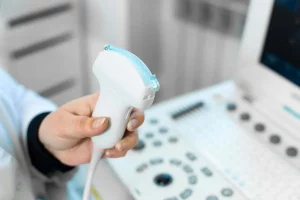
Medical education and training have made significant advancements over the years, especially in the field of aesthetic medicine. One innovative approach that has gained prominence is Cadaver Lab Training. This unique hands-on cadaver experience, led by industry experts, offers an excellent opportunity for healthcare professionals to enhance their injectable and anatomy skills. However, as we delve into cadaveric education, we must emphasize the importance of respectful cadaver handling throughout the process. This blog explores the significance of treating cadavers with the utmost respect, acknowledging their contribution to medical education, and highlighting the ethical and emotional aspects of such training.
Acknowledging the Role of Cadavers in Medical Education
At the heart of medical education lies the imperative to comprehend the intricacies of the human body, from anatomy to surgical techniques. Cadavers have fulfilled this educational need for centuries, realistically representing human anatomy and physiology. These invaluable tools enable medical trainees to gain practical experience without jeopardizing patient safety. By acknowledging cadavers’ pivotal role in medical training, we can cultivate a deeper appreciation for the individuals who generously donated their bodies to science, leaving a lasting impact on the advancement of healthcare.
Ethical Considerations in Cadaver Handling
Respectful cadaver handling is closely intertwined with ethical considerations. It is essential to approach cadavers with sensitivity and empathy, recognizing that each of these bodies was once a living individual who entrusted their remains to further medical knowledge. Ethical guidelines must be strictly followed, beginning with obtaining informed consent from donors or their families before utilizing their bodies for educational purposes. The ethical aspect of cadaver handling also ensures that the remains are treated with dignity and respect throughout the training process.
Establishing a Culture of Reverence and Gratitude
Creating a culture of reverence and gratitude within the cadaver lab is crucial. While medical professionals often view cadavers as indispensable educational tools, it is equally important to acknowledge the humanity of these individuals who made selfless contributions to medical science. By fostering an environment of gratitude, trainees can develop a deeper sense of responsibility and respect for the cadavers they work with, enhancing the overall learning experience.
Respecting the gift of donation: Trainees should be reminded of the profound significance of the cadaver donation. Encouraging them to take a moment to reflect on the selflessness of the donors and their families can reinforce the importance of treating the remains with the utmost care and consideration.
Emphasizing Inclusivity in Cadaver Lab Training
Cadaver lab training should strive to be inclusive, and representative of the diverse patient population medical professionals encounter throughout their careers. This approach ensures that the cadaver lab reflects the variety of ethnicities, genders, and body types in the real world. By exposing trainees to anatomical variations across different demographics, they can develop a deeper understanding of patient diversity, leading to more empathetic and patient-centered care.
Supporting diversity in medical education: Promoting inclusivity also means providing opportunities for aspiring medical professionals from diverse backgrounds to access cadaver lab training. By doing so, we can enrich the perspectives and experiences within the medical community, fostering a more comprehensive approach to patient care.
Cultivating Empathy and Compassion in Medical Education
Medical education should extend beyond the acquisition of technical skills and knowledge. By incorporating respectful cadaver handling into the curriculum, educators can instill the values of empathy and compassion in future healthcare providers. Understanding the humanity of the cadaver can serve as a poignant reminder of their work’s profound impact on actual patients, motivating them to prioritize patient care and emotional well-being.
Embracing the human aspect: By encouraging trainees to view cadavers not as lifeless objects but as individuals with unique stories, medical education can instill a sense of empathy that transcends the classroom and translates into compassionate patient care.
Encouraging Responsible Use of Cadavers
As the demand for cadavers in medical education grows, it is imperative to ensure responsible use of these valuable resources. Balancing the need for hands-on training with ethical considerations involves leveraging modern technology, such as virtual anatomy tools, alongside traditional cadaver lab training. By reducing the number of cadavers needed for training and maximizing their educational impact, we can honor the donors’ wishes while advancing medical education.
Utilizing alternative learning methods: Integrating virtual and augmented reality tools into medical education can provide a more sustainable and resourceful approach to anatomical learning, complementing traditional cadaver lab training.
Ensuring Environmental Sustainability in Cadaver Lab Training
In advancing medical knowledge, it is crucial to consider the environmental impact of cadaver lab training. Traditional cadaver preservation methods, such as formaldehyde-based embalming, can adversely affect the environment due to chemical waste disposal. To promote ethical and sustainable practices, medical educators must explore alternative, environmentally friendly preservation methods without compromising educational quality.
One such solution is the adoption of eco-friendly embalming fluids made from biodegradable substances. These fluids offer a viable option for preserving cadavers while minimizing environmental harm. Additionally, institutions can explore using reusable materials and equipment in the cadaver lab to reduce waste generation.
By incorporating environmental sustainability into cadaver lab training, medical professionals can demonstrate a commitment to ethical practices that benefit the educational experience and contribute to a greener and more sustainable future for medical education.
Conclusion
Coast to Coast Cadaver Lab Training (C2C) is a testament to the ethical significance of respectful cadaver handling in medical education. By acknowledging the invaluable role of cadavers in advancing healthcare knowledge and fostering a culture of reverence and gratitude, we honor the donors’ selfless contributions. Emphasizing inclusivity, empathy, and responsible use of cadavers elevates the learning experience, ensuring that future healthcare professionals prioritize patient care and dignity.
As we seek innovative and sustainable approaches in medical education, I am delighted to introduce Glo Academy—an exemplary institution committed to excellence in training. With a focus on ethics, empathy, and environmentally conscious practices, Glo Academy offers a diverse range of educational programs designed to empower medical professionals in their pursuit of knowledge. By choosing Glo Academy, you embark on a transformative journey that enhances your skills and instills a deep sense of compassion and responsibility towards patient care and our planet. Discover the Glo Academy experience and shape a brighter future for healthcare together.





